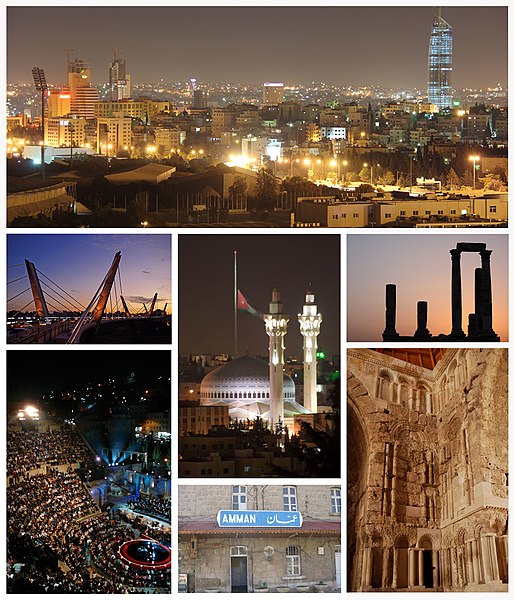Difference between revisions of "Adopting from Jordan"
(→Hague Convention Information) |
(→Hague Convention Information) |
||
| Line 20: | Line 20: | ||
=Hague Convention Information= | =Hague Convention Information= | ||
| − | Jordan is not party to the Hague Convention on Protection of Children and Co-operation in Respect of Intercountry [[Adoption]](Hague [[Adoption]] Convention). Intercountry adoptions of children from non-Hague countries are processed in accordance with 8 Code of Federal Regulations, Section 204.3 as it relates to orphans as defined under the Immigration and Nationality Act, Section 101(b)(1)(F). | + | Jordan is not party to the Hague Convention on Protection of Children and Co-operation in Respect of Intercountry [[Adoption]]([http://adoption.state.gov/hague_convention/overview.php Hague [[Adoption]] Convention]). Intercountry adoptions of children from non-Hague countries are processed in accordance with [http://www.ecfr.gov/cgi-bin/text-idx?c=ecfr&rgn=div5&view=text&node=8:1.0.1.2.8&idno=8#8:1.0.1.2.8.1.1.3 8 Code of Federal Regulations, Section 204.3] as it relates to orphans as defined under the Immigration and Nationality Act, Section 101(b)(1)(F). |
| + | |||
Note: [[Adoption]] is not allowed by the law of Jordan. However, the Ministry of Social Development (MSD) may grant guardianship of children to people who are not the child’s parents and who intend to adopt the child in a different country. [[Custody]] and Alternative Families is a [[system]] followed in Jordan. This [[system]] is similar to [[adoption]], but differs in that it maintains the original parental relationship as mandated by Islamic Law. This [[system]] is consistent with Jordanian Juvenile Law Number 24 of 1968 and amendments. | Note: [[Adoption]] is not allowed by the law of Jordan. However, the Ministry of Social Development (MSD) may grant guardianship of children to people who are not the child’s parents and who intend to adopt the child in a different country. [[Custody]] and Alternative Families is a [[system]] followed in Jordan. This [[system]] is similar to [[adoption]], but differs in that it maintains the original parental relationship as mandated by Islamic Law. This [[system]] is consistent with Jordanian Juvenile Law Number 24 of 1968 and amendments. | ||
| − | U.S. IMMIGRATION REQUIREMENTS FOR INTERCOUNTRY ADOPTIONS | + | '''U.S. IMMIGRATION REQUIREMENTS FOR INTERCOUNTRY ADOPTIONS''' |
| + | |||
| + | To bring an adopted child to the United States from Jordan you must meet [http://adoption.state.gov/adoption_process/who_can_adopt/eligibility.php eligibility and suitability requirements]. The U.S. Department of Homeland Security, U.S. Citizenship and Immigration Services (USCIS) determines [http://adoption.state.gov/adoption_process/who.php who can adopt] under U.S. immigration law. | ||
| − | |||
| − | Additionally, a child must meet the definition of | + | Additionally, a child must meet the [http://www.uscis.gov/tools/glossary/orphan definition of orphan] under U.S. immigration law in order to be eligible to immigrate to the United States on an IR-3 or IR-4 immigrant visa. |
=Who Can Adopt= | =Who Can Adopt= | ||
Revision as of 05:46, 24 March 2014
Contents
Hague Convention Information
Jordan is not party to the Hague Convention on Protection of Children and Co-operation in Respect of Intercountry Adoption(Hague Adoption Convention). Intercountry adoptions of children from non-Hague countries are processed in accordance with 8 Code of Federal Regulations, Section 204.3 as it relates to orphans as defined under the Immigration and Nationality Act, Section 101(b)(1)(F).
Note: Adoption is not allowed by the law of Jordan. However, the Ministry of Social Development (MSD) may grant guardianship of children to people who are not the child’s parents and who intend to adopt the child in a different country. Custody and Alternative Families is a system followed in Jordan. This system is similar to adoption, but differs in that it maintains the original parental relationship as mandated by Islamic Law. This system is consistent with Jordanian Juvenile Law Number 24 of 1968 and amendments.
U.S. IMMIGRATION REQUIREMENTS FOR INTERCOUNTRY ADOPTIONS
To bring an adopted child to the United States from Jordan you must meet eligibility and suitability requirements. The U.S. Department of Homeland Security, U.S. Citizenship and Immigration Services (USCIS) determines who can adopt under U.S. immigration law.
Additionally, a child must meet the definition of orphan under U.S. immigration law in order to be eligible to immigrate to the United States on an IR-3 or IR-4 immigrant visa.
Who Can Adopt
Residency
Age of Adopting Parents
Marriage
Income
Other
Who Can Be Adopted
How to Adopt
Adoption Authority
The Process
Traveling Abroad
After Adoption
SOURCE
Intercountry Adoption, Bureau of Consular Affairs. U.S. Department of State Country Information








